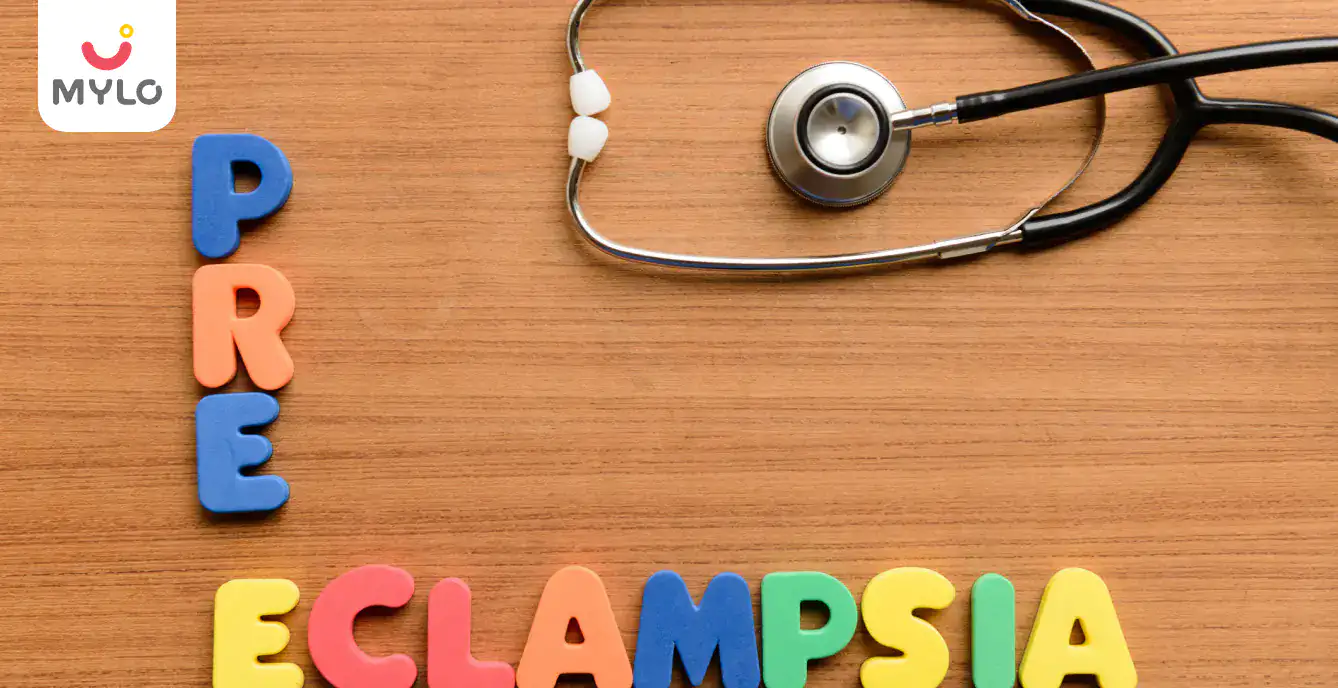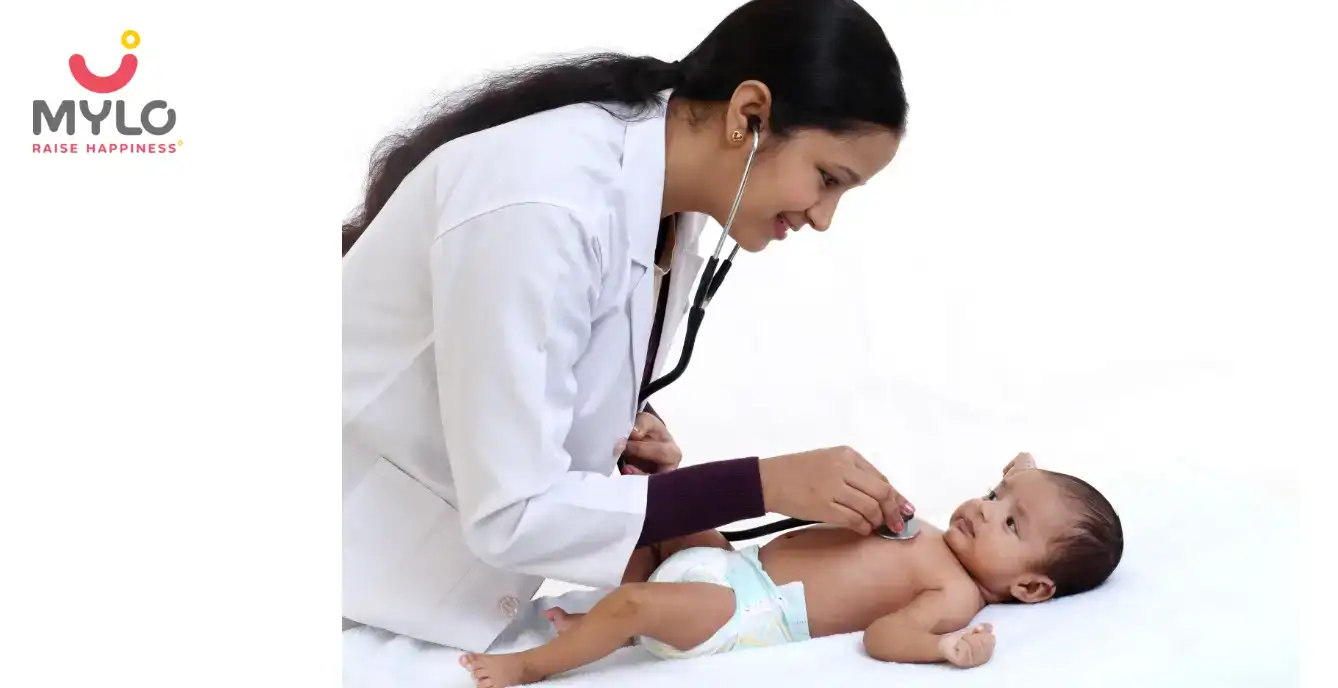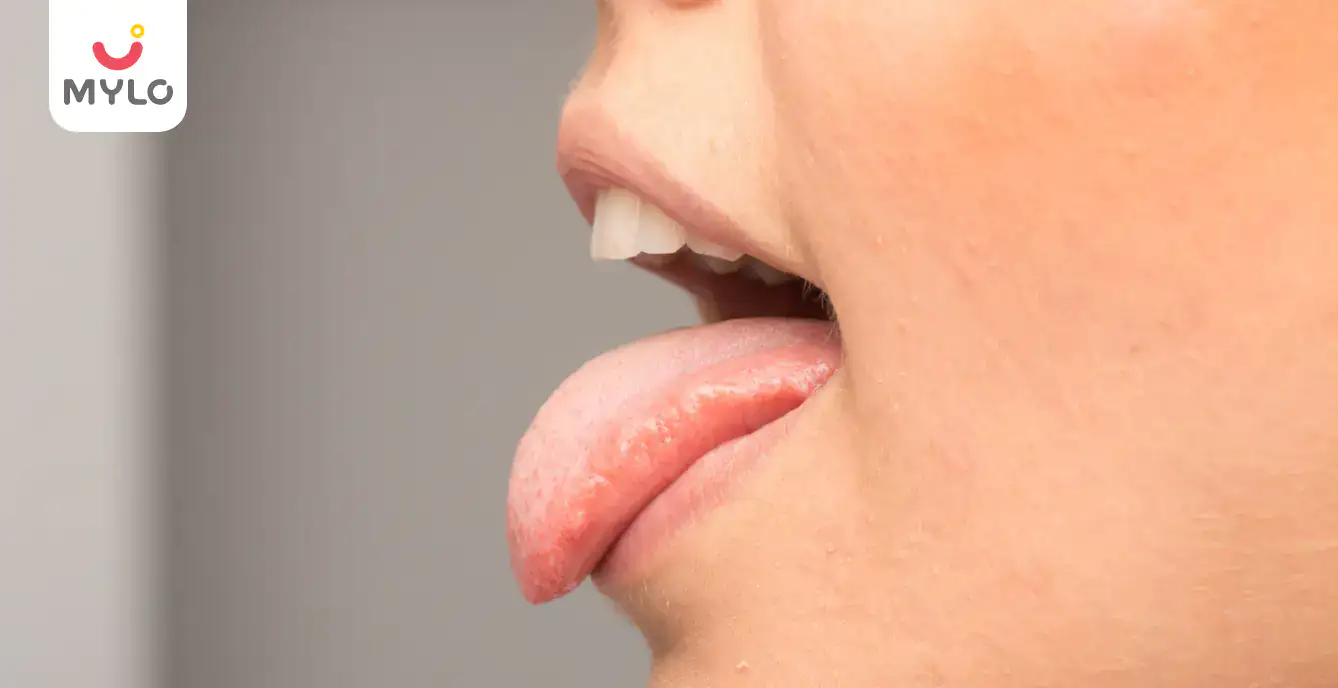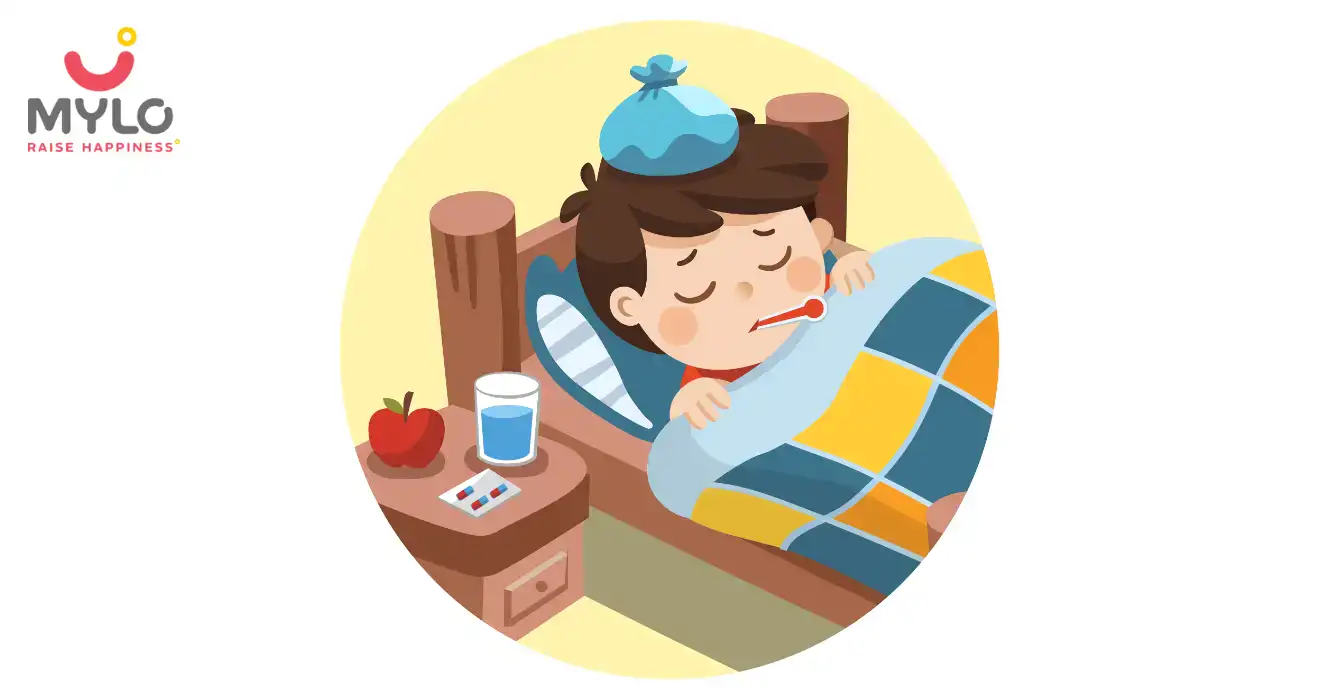In this Article
Feeding
Reflux in Baby: Symptoms, Causes & Treatment
Updated on 18 April 2023
Acid reflux in babies is a common condition that is usually not dangerous. But managing a reflux baby can often be challenging for new parents. In this article, we will discuss what is acid reflux in babies, its symptoms and causes and how to treat and help a reflux baby.
What is reflux in babies?
Reflux is when a baby brings up or spits milk and/or is sick during or shortly after feeding. It’s common even in healthy babies and usually gets better on its own. Acid reflux in babies starts before babies are 8 weeks old and improves by the time they turn 1. Also called gastroesophageal reflux disease or GERD in babies, infant reflux can occur multiple times in a day and is rarely a cause for concern.
Symptoms of reflux
Symptoms of infant reflux or GERD in babies include the following:
-
Spitting milk or being sick during or shortly after feeding
-
Coughing or hiccupping frequently when feeding
-
Feeling unsettled during feeding
-
Gulping or swallowing after burping or feeding
-
Crying without settling
-
Poor weight gain
Sometimes, babies can have signs of reflux but not bring up milk or get sick. This is called silent reflux.
Causes of reflux
Acid reflux usually happens because babies’ food pipe (oesophagus) has not yet matured fully, causing milk to come back up.
Sometimes, infant reflux can be caused by more serious health concerns such as:
1. GERD
The reflux contains enough acid to irritate and damage the esophagus’ lining.
2. Food Intolerance
The protein in cow’s milk is one of the most common triggers.
3. Pyloric Stenosis
Sometimes, the valve between the stomach and small intestine is narrowed, preventing the contents of the stomach from emptying into the small intestine.
4. Eosinophilic Esophagitis
Eosinophil, a peculiar type of white blood cell can build up and injure the lining of the esophagus.
5. Sandifer Syndrome
Although a rarely seen consequence of GERD in babies, this can cause abnormal tilting and rotation of the head and seizure-like movements.
Things you can do to help babies with reflux
To help your reflux baby, here are some lifestyle changes and home remedies you can try:
1. Feeding in an upright position
Try to feed your baby in an upright position and hold them in a sitting position for at least 30 minutes after feeding. This can help to keep the stomach contents where they belong. Additionally, avoid jostling or jiggling your baby until the food is settled.
2. Smaller, more frequent feedings
Instead of longer and more frequent feeds, go slow. If your baby is suffering from infant reflux, try to cut back a little on breastfeeding or bottle-feed them slightly less than usual.
3. Burp your baby
Try to take your time burping your little one. Burping your baby during and after feeding can keep air bubbles form building in their stomach.
4. Put baby to sleep on their back
Remember to always put your baby to sleep on their back, even if they have reflux.
Treatment for infant reflux
While home remedies and making little adjustments can help your reflux baby, in some serious cases doctor may recommend medications or surgery.
If you’re formula feeding your baby, your doctor might give you a powder to mix with the formula milk and thicken it or a pre-thickened formula milk. If that doesn’t help or your baby is being breastfed, the doctor might recommend some medicines to prevent the stomach from producing as much acid.
Very rarely, the doctor might suggest surgery to strengthen your baby’s muscles to prevent food or milk from travelling back up. This is usually only done when reflux is severe enough to obstruct your baby’s breathing or prevent their growth.
Complications
Reflux in babies usually resolves on its own without causing any serious problems. However, serious concerns like GERD in babies can interfere with their growth and cause them to grow poorly. According to some studies, babies who experience frequent episodes of spitting up are more likely to develop GERD later in their childhood.
Key Takeaway
Remember, reflux in babies is usually a little cause for concern and resolves on its own by the time your baby turns one. Make some adjustments, follow the home remedies and keep plenty of baby bibs handy as you and your reflux baby ride it out.



Written by
Ravish Goyal
Official account of Mylo Editor
Read MoreGet baby's diet chart, and growth tips

Related Articles
RECENTLY PUBLISHED ARTICLES
our most recent articles

Preeclampsia
Pre Eclampsia: Meaning, Causes & Symptoms
Illnesses & Infections
Baby Diarrhea: Causes, Symptoms & Treatment

Illnesses & Infections
Bronchiolitis: Causes, Symptoms & Treatment

Pelvic Pain in Pregnancy: Symptoms & Treatment

Pregnancy Journey
Saliva During Pregnancy: Causes & Prevention

Fever
Effective Ways to Treat Jaundice in Children: Expert Tips for a Speedy Recovery
- 10 Best Original Movies to Watch on Netflix
- Flu, Change of Season or New Covid Variant, XBB.1.16- What’s Causing These Symptoms?
- 5 Ways In Which Music Can Boost Your Baby's Brain Development
- How to Stop Baby Hiccups: Everything You Need to Know
- “Staying Active and Healthy: The Benefits of Safe Exercise During Pregnancy”
- Appendicitis In Pregnancy Symptoms, Diagnosis & Surgery
- 5 Common Myths Busted About Baby Sleep
- “Ectopic Pregnancy: All You Need to Know About This Complication”
- Importance of Typhoid vaccines
- Benefits of eating nuts
- Can One Induce Labor Naturally?
- Should One Consider Keeping Their Pregnancy A Lowkey News?
- Destination decide
- After delivery pregnancy


AWARDS AND RECOGNITION
Mylo wins Forbes D2C Disruptor award
Mylo wins The Economic Times Promising Brands 2022
AS SEEN IN
















At Mylo, we help young parents raise happy and healthy families with our innovative new-age solutions:
- Mylo Care: Effective and science-backed personal care and wellness solutions for a joyful you.
- Mylo Baby: Science-backed, gentle and effective personal care & hygiene range for your little one.
- Mylo Community: Trusted and empathetic community of 10mn+ parents and experts.
Product Categories
baby carrier | baby soap | baby wipes | stretch marks cream | baby cream | baby shampoo | baby massage oil | baby hair oil | stretch marks oil | baby body wash | baby powder | baby lotion | diaper rash cream | newborn diapers | teether | baby kajal | baby diapers | cloth diapers |






